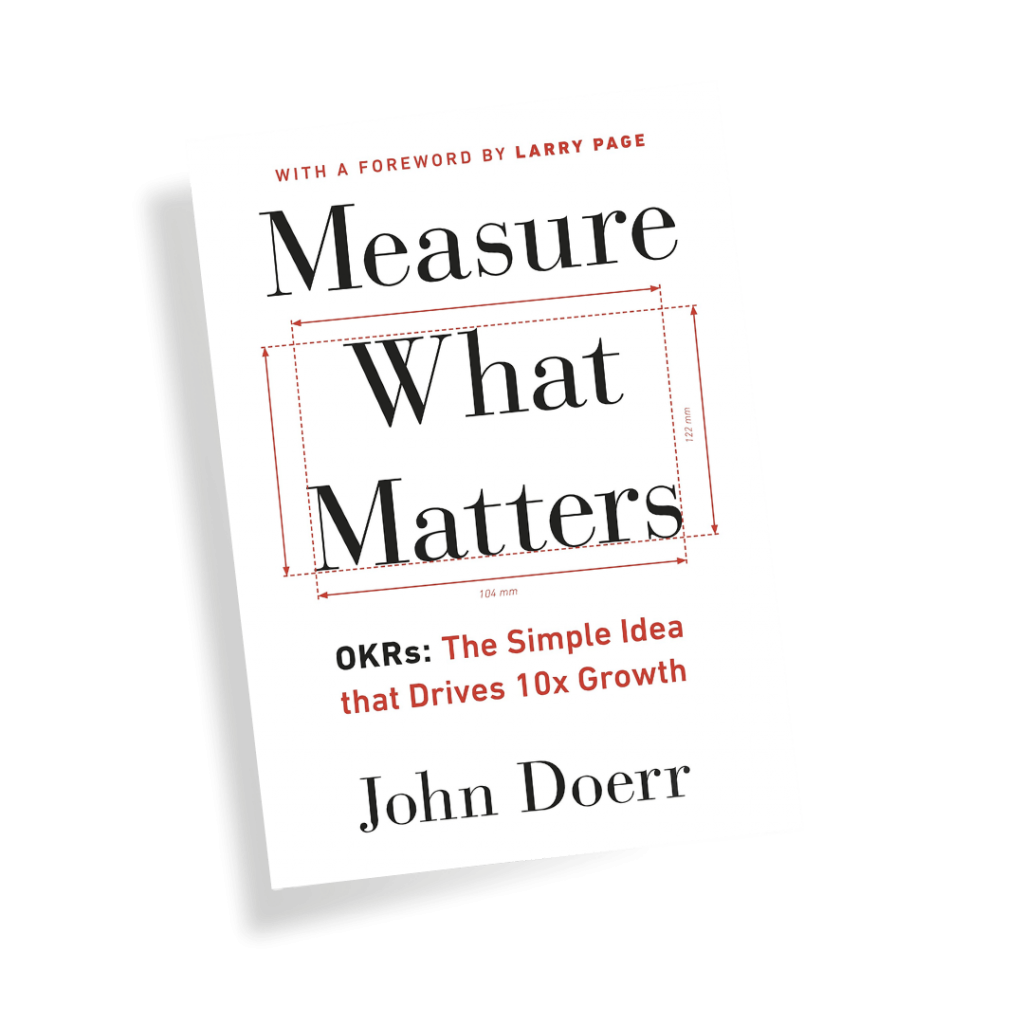Measure What Matters by John Doerr
January 23, 2024 2024-11-05 16:48Measure What Matters by John Doerr
Achieve Goals with OKRs
Key Lessons from Measure What Matters by John Doerr

Ideas are easy. Execution is everything.
John Doerr
9 Key Takeaways from the Book
Understand OKRs for Clarity
Objectives and Key Results (OKRs) help clarify goals and the path to achieve them. An objective defines the target, while key results measure progress. This dual structure keeps teams aligned and focused.
Objectives Drive Purpose
Objectives represent high-level goals or visions, such as “become an industry leader.” OKRs ensure that teams stay driven by a purpose, making goals more compelling and meaningful.
Key Results Measure Progress
Key results break down objectives into measurable outcomes. They serve as specific milestones, like “increase customer satisfaction by 25%,” which makes tracking progress easier and more actionable.
Regularly Track Progress
Tracking progress frequently is crucial to staying on course. Doerr recommends weekly or monthly check-ins to assess and adjust efforts, allowing teams to quickly adapt if they’re off track.
Accountability is Essential
OKRs foster a culture of accountability. By publicly setting and tracking OKRs, team members know their roles and are more committed to achieving their goals, which drives team performance.
Use Stretch Goals for Growth
OKRs include “stretch goals” to push beyond comfort zones. Stretching goals encourages ambitious thinking, which motivates teams to tackle big challenges and fosters innovation.
Differentiate Committed vs. Aspirational Goals
Committed objectives are essential and must be fully achieved. Aspirational or stretch objectives, however, are ambitious goals that push boundaries, often falling short but still providing valuable progress.
Be Willing to Adjust Goals
OKRs are flexible. Adjust them based on real-time results and external factors. Regular reviews allow organizations to pivot or refine objectives, ensuring continuous alignment with core priorities.
Make OKRs Part of the Culture
To benefit from OKRs fully, they should be an integral part of the organization’s culture. Reinforcing OKRs as a standard practice enhances goal-setting across all levels, creating a consistent, focused approach.

Goal Achievement = Clear Objectives + Measurable Key Results + Regular Tracking
OKRs help make big goals achievable by breaking them down into measurable steps. Set clear goals, track them regularly, and adjust when needed.
– Coach Ramesh S
Measure what matters, and your goals will become easier to achieve.
– John Doerr
Summary Note
Measure What Matters by John Doerr introduces OKRs as a powerful goal-setting framework. By combining clear objectives with measurable key results and regular tracking, teams can focus on achieving both high-stakes and incremental goals, fostering accountability and driving growth.
Explore More

For More Details
Ready to elevate your business? Our tailored coaching programs help entrepreneurs unlock their potential and achieve sustainable growth. Start with a free strategy session to discover your roadmap to success!


